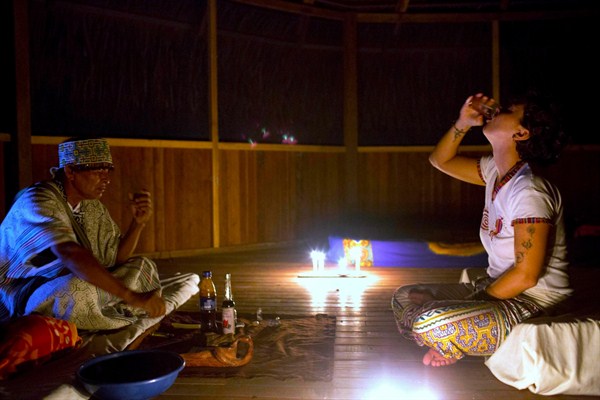Editor’s note: The following article is one of 30 that we’ve selected from our archives to celebrate World Politics Review’s 15th anniversary. You can find the full collection here.
PUCALLPA, Peru—Delfin Tutucima Rios’ journey as a healer began about two decades ago, when he himself fell ill. He was 30 years old at the time, working as a teacher in this city on the Ucayali River in eastern Peru, when he was afflicted by a malady that doctors could not diagnose. His liver swelled, and his arms and legs became bloated. Doctors later told him he had cancer. Eventually he was hospitalized, only to emerge from treatment as sick as before. Anti-inflammatories helped, but if he stopped taking them, the pain would return.
Tutucima is a member of the Shipibo indigenous group, who hail from Peru’s Amazonian Ucayali region. Both of his grandfathers had been Shipibo healers—“men of power,” he says, who cured people using rituals involving medicinal plants and songs. But when Tutucima was a child, his parents, who had converted to evangelical Christianity, forbade him from studying the healing arts with his grandfathers. And now that he needed their wisdom, his grandfathers were no longer alive.

